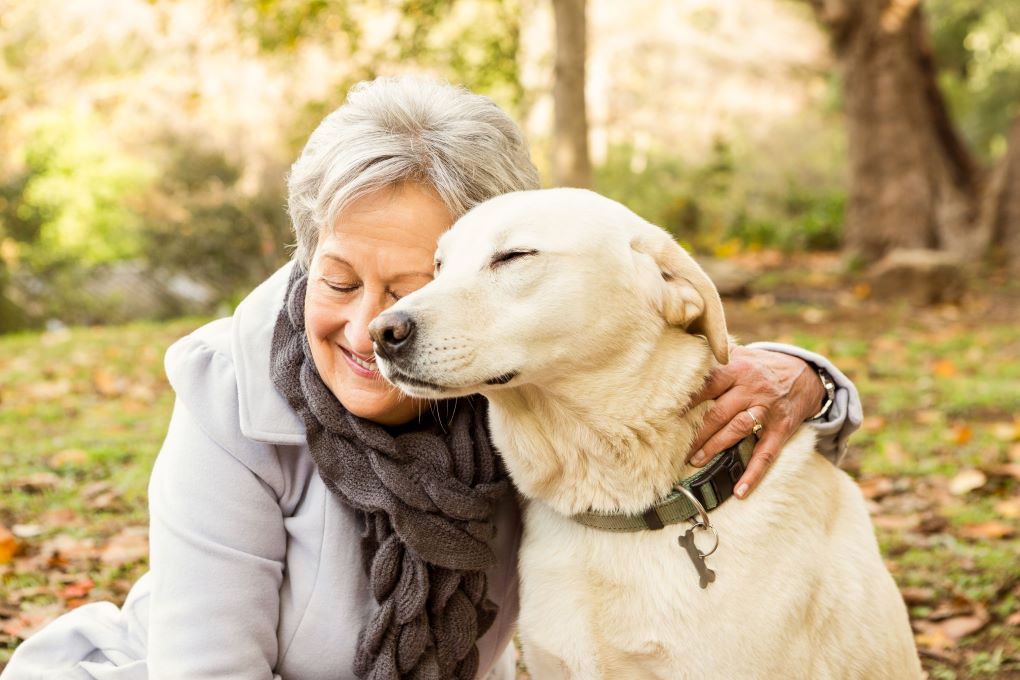Age with Grace: The Definitive Guide to Ensuring Your Seniors Pets’ Health and Happiness
Pet owners have always had a deep concern for the well-being of their senior cats and dogs. Generally, cats and small dogs are considered seniors when they reach the age of 7, while larger dogs, having shorter lifespans, reach their senior years at 6. Despite the advancements in veterinary medicine, older pets remain more vulnerable to a range of health issues. This comprehensive guide aims to provide valuable insights into the care of senior pets, with the goal of ensuring a joyful and healthy life for your aging companions.

Spot the Signs of Aging in Your Pets
Apart from simply considering the pet's age, several signs may suggest your pet's transition into seniority:- Graying or mottled fur is a typical feature in aging cats and dogs.
- Pets might be prone to irritability or depressive symptoms.
- A pet's sensory capabilities may gradually decline
- Diminished sensitivity to sounds or smells can be observed.
- Vision often deteriorates and perception decreases.
- Cognitive function may start to decline.
- Memory and cognitive abilities gradually diminish over time, increasing the risk of developing dementia.
- Lack of energy and decreased activity levels are common.
- Slower, less agile movements may signal possible degenerative arthritis.
Age-Related Health Risks in Pets
As pets age, their health condition requires increased attention. Here are health concerns commonly observed in aging dogs and cats:- Oral issues: Tartar and gum recession can result in bad breath, gingivitis, and other problems.
- Cardiovascular diseases: Hypertension and heart disease, symptoms such as shortness of breath or irregular heartbeat.
- Eye problems: Cataracts and glaucoma.
- Kidney or liver diseases: Symptoms may include abnormal urine color, vomiting, diarrhea, and appetite loss.
- Endocrine disorders: Diabetes and thyroid conditions.
- Joint issues: Degenerative arthritis.
- Tumors: Elder pets are more susceptible to tumors, especially skin and mammary tumors.
Recommended Daily Care for Senior Cats and Dogs
With advancing age, pets require more comprehensive care for their well-being. Here are some essential aspects of senior cat and dog care:- Ensure a balanced diet with the right caloric intake to keep them healthy. Monitor the fat, sodium, and cholesterol content in their meals.
- Regular exercise can maintain muscle mass and cardiorespiratory health while also boosting mental well-being.
- To prevent fall-related injuries, minimize height disparities in the environment, and consider installing anti-collision equipment. Elevate food bowls to ease eating for senior pets, reducing strain on the spine from bending over.
- Consistent preventive measures against internal and external parasites, along with vaccinations, help safeguard against parasitic and viral infectious diseases.
Beneficial Health Supplements for Senior Pets
The utilization of suitable health products aids senior dogs and cats in effectively supplementing essential nutrients, thereby potentially delaying or reducing the risk of diseases.- Oral and digestive health: Lactoferrin, probiotics, and enzymes can mitigate bad breath and gastrointestinal discomfort.
- Cardiovascular health: Fish oil, Coenzyme Q10, L-Carnitine, taurine, fucoxanthin, citrus and grape seed extracts can help lower cholesterol and protect cardiac health.
- Eye health: Lutein, zeaxanthin, anthocyanidin, fish oil, and astaxanthin can protect the eyes and slow vision loss.
- Kidney health: Amino acids, probiotics, brown algae, fish oil, and activated charcoal can aid in eliminating harmful substances and preserving kidney health.
- Cognitive and liver health: SAMe can slow down the degenerative process.
- Joint health: Undenatured type II collagen, green-lipped mussels, MSM, glucosamine, and chondroitin have the potential to alleviate joint discomfort and reduce the risk of joint diseases.
- Tumor prevention: Brown algae demonstrate antioxidative and anti-inflammatory properties.
01.jpg)
Routine Vet Check-Ups to Detect Health Issues in the Early Stages for Senior Pets
As pets age, their physical condition undergoes changes, and some diseases may not have obvious symptoms. By scheduling regular health check-ups, potential issues can be detected and treated in a timely manner, while adjusting care methods based on veterinary recommendations. Lastly, remember to provide senior dogs and cats with extra care and companionship, allowing them to enjoy a happy life in their later years.


A Complete Guide to Heart Disease in Cats and Dogs: Recognizing Warning Signs in Daily Life
Have you noticed your cat or dog becoming unusually lethargic or less active, showing rapid breathing, coughing, or even suddenly collapsing during a walk? These seemingly minor day-to-day changes can be early warning signs of underlying heart problems—particularly cardiomyopathy. Without timely intervention, such conditions may progress rapidly and become life-threatening. This article will guide you through the most common heart diseases in cats and dogs, explain how to recognize heart-related issues through everyday abnormalities, and offer care and supplement recommendations to help safeguard your pet’s critical window of heart health.

Sarcopenia in Aging Dogs and Cats: Hidden Risks of Muscle and Joint Degeneration and Strategies for Care!What Is Sarcopenia? It’s More Than Just “Getting Thinner!
As dogs and cats grow older, many pet owners notice reduced activity levels and apparent weight loss. While these changes are often dismissed as normal signs of aging, they may actually indicate a more serious condition — sarcopenia. Sarcopenia is the gradual loss of muscle mass and strength caused by aging or chronic illness. Unlike general weight loss, which may involve fat or overall body mass, sarcopenia specifically targets muscle tissue. This means that even if a pet’s body weight appears stable, they could still be experiencing significant muscle loss.















